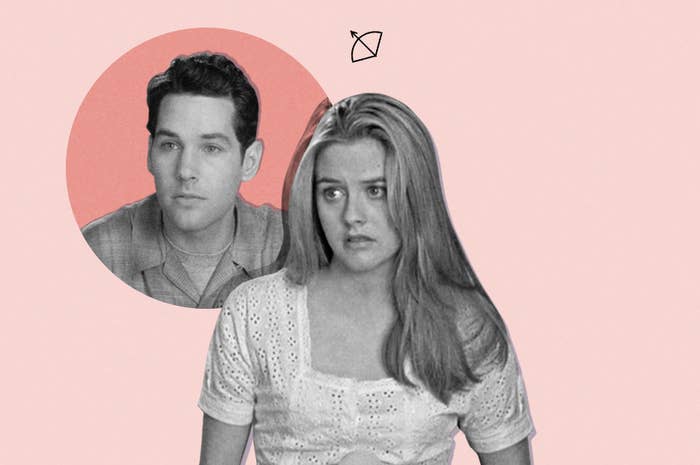
When Clueless came out in 1995, Entertainment Weekly critic Owen Gleiberman had this to say: "In the world according to Cher, Hamlet is that guy played by Mel Gibson, making love in a car is 'jeepin,' and a moment of anxious weirdness is summed up by the confession 'I'm having a Twin Peaks experience.'" To be clear, he said it like it was a bad thing. (He also devoted a whole creeptastic paragraph to Alicia Silverstone's "ripely precocious baby-doll allure.") He gave the film a C+, a grade Cher would have seen as a mere jumping-off point for negotiations but which the rest of us understood to be a clearly drawn battle line between those to get it and those who don't. (Also between those who unironically use the phrase "making love" and those who don't. But that's another essay.)
As an update of Emma, one of my favorite books ever, Clueless instantly became and remains my favorite Jane Austen adaptation, capturing all the entitlement, privilege, hubris, brattiness, unfulfilled potential, and mystifying likability of Emma Woodhouse in a thoroughly modern context, translating the charged dialogue between Emma and Knightley into pitch-perfect postmodern repartee. It seemed tailor-made for a latchkey generation weaned on MTV, eighties excess, and nineties irony, and the fact that it appeared to go over certain critics' heads just made us like it more — inconceivable though it was that someone could dislike it.
It was nearly as surprising to discover that just as many Millennials loved it as my friends and I did. Of course, when I think about it now, I see why: It's the story of Generation Y (Cher) falling in love with Generation X (Josh).
Think about it. Josh is a flannel-wearing, Nietzsche-reading, goatee-growing "loser" who listens to Radiohead, wants to practice environmental law, and dates surly girls in Doc Martens. According to Josh, Cher's a "superficial space cadet" who has no idea who Billie Holiday is, thinks classical architecture is something invented in the seventies, and yes, views grades as arbitrary measures of value to be manipulated by a good argument. Their clash is a mini-lesson in the gripes each generation has about the other. (And arguably, a snapshot of the crisis of postmodern American life. But that's another essay.)
We see their romance coming before they do, of course, because they're too busy sniping at each other, competing for the attention of the gruff father figure who calls his own parents "brain-dead lowlifes" but also insists that he divorces "wives, not children" when Cher complains that ex-stepbrother Josh isn't even a real relative. Josh disapproves of Cher's aggressive makeover of newcomer Tai, rightly accusing her of acting out her own mommy issues on the unsuspecting naif; Cher sees through Josh's pretentious girlfriend's nattering and surprises her with a Mel Gibson-channeled command of Hamlet dialogue.
They resist, they fight, they wrestle — and then they give in to the realization that they need each other. Josh needs Cher's free-floating playfulness to help him laugh at himself; Cher needs Josh's earnestness to give her direction toward somewhere other than the mall; they both acknowledge that neither is really as clueless as they've made each other out to be. For them, as for all of us, the compromise that comes with loving someone different is what saves us from ourselves. When they get together in the end, suddenly the whole world just makes sense.
Which is, of course, what a great romance does: not just tell a story about two people getting together but a story in which the union represents some greater, more important order in the universe. The pleasure of Clueless is manifold: It's a contemporary commentary on the Austen-era romance, but it's a damn good example of it, too, giving as much traditional satisfaction as the pre-Victorian book it was based on. So Cher can pretend all she likes that the reason she wants to catch the bouquet at the end is to win the $200. The rest of us know the truth, and it goes a little like this: As if.
